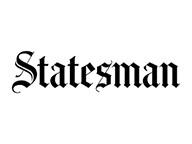Professor Arun Sundararajan shares how Harley-Davidson can leverage shifts in the transportation market






































Excerpt from ThinkAdvisor -- "'Since the wave of market reforms that started almost two decades ago, stock prices in China have become as informative about future firm profits as they are in the U.S.,' according to the authors."

Excerpt from ThinkAdvisor -- "'Since the wave of market reforms that started almost two decades ago, stock prices in China have become as informative about future firm profits as they are in the U.S.,' according to the authors."









